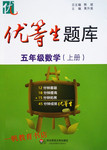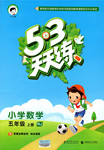题目内容
Once there was a young girl named Eliza.She was the daughter of a king and she was very lazy.She_______had her servants do everything for her.
“I am very thirsty,and my_______is on the table.Please get it for me.”She called._______a servant picked the glass up from the_______next to Eliza and held it up to her_______until Eliza was no longer_______.The next day.Eliza was walking to dinner when her hat_______.She called for a servant and a young man ran over,picked up the hat,_______it off,and placed it back on Eliza’s head.
She continually_______her servants to do simple tasks for her.Her father noticed her________and decided to punish her. He set her in a________with only a loom(织布机)and some thread.No________were allowed in the room
“You will________in this room,not eating or drinking until you have woven a blanket for me.You have to do all of the work by________.”The king left Eliza all alone in her room.
Eliza called for her servants,________none appeared.Then she________her father telling her about Athena,the goddess of wisdom.She called for Athena over and over until finally,she fell________.
While she was sleeping,she had a________.Hermes spoke to her in her dream.He said “Athena has heard your pleas(请求)for________.She is very angry with you.She will come to you and inform you of your________”.Eliza awoke very frightened.
1.A. seldom B. always C. never D. sometimes
2.A. hat B. thread C. blanket D. glass
3.A. Immediately B. Suddenly C. Fortunately D. Eventually
4.A. floor B. shop C. table D. kitchen
5.A. bed B. room C. lips D. shoulders
6.A. angry B. hungry C. happy D. thirsty
7.A. fell off B. went away C. jumped off D. stood up
8.A. took B. dusted C. kicked D. paid
9.A. begged B. required C. advised D. persuaded
10.A. happiness B. wisdom C. laziness D. honesty
11.A. school B. factory C. room D. church
12.A. servants B. classmates C. relatives D. sisters
13.A. rest B. study C. play D. stay
14.A. himself B. myself C. herself D. yourself
15.A. but B. so C. also D. even
16.A. forgot B. remembered C. regretted D. suggested
17.A. ill B. hungry C. asleep D. worried
18.A. time B. power C. chance D. dream
19.A. help B. playing C. accompany D. living
20.A. praise B. punishment C. pleas D. freedom
 优等生题库系列答案
优等生题库系列答案 53天天练系列答案
53天天练系列答案
